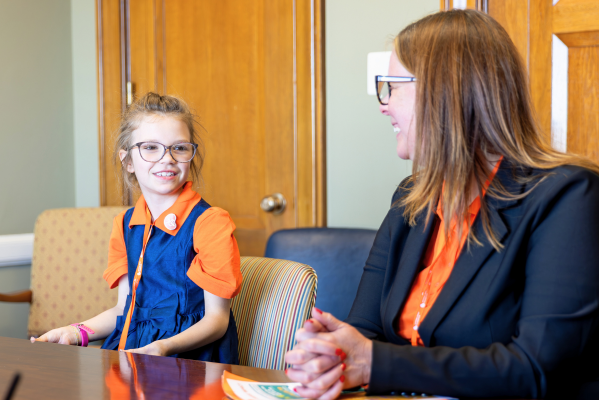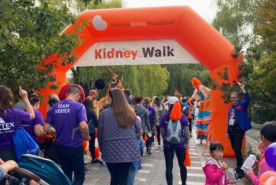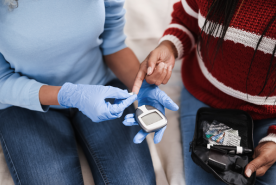April 15, 2025
Chronic kidney disease affects millions of Americans, yet many people don't know they have it until the disease has progressed significantly. As kidney advocates, understanding how federal funding supports kidney health programs is crucial for improving outcomes for those living with kidney disease.
Here’s what you need to know.
Federal Funding for Kidney Health
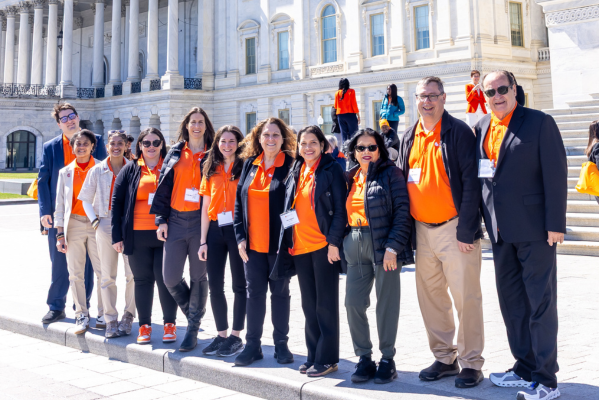
Currently, about 35.5 million American adults have chronic kidney disease (CKD), with another 80 million at risk. Despite these numbers, 90% of individuals with CKD remain undiagnosed because early-stage disease often shows no symptoms.
For patients who progress to kidney failure, transplantation offers the best outcomes compared to dialysis. However, nearly 90,000 people remain on kidney transplant waiting lists due to a system that was designed over 40 years ago and hasn't kept pace with modern technology and patient needs.
For Medicare, kidney disease expenses consume nearly a quarter of its annual budget—over $138 billion.
Federal funding for kidney health programs is determined through the annual appropriations process.
Here's a simplified explanation:
- The President submits a budget request to Congress (usually in February)
- Congress reviews this request and develops spending bills
- These bills are debated, potentially amended, and voted on
- If passed, the bills determine the funding levels for various federal programs
For kidney health programs, funding is primarily included in the Labor, Health and Human Services (Labor-HHS) appropriations bill. The FY2026 (Fiscal Year 2026) appropriations process will determine funding levels starting October 1, 2025.
NKF Funding Priorities
The Health Resources and Services Administration (HRSA) oversees the OPTN, which is responsible for allocating and distributing donor organs.
In 2023, HRSA launched the OPTN Modernization Initiative to strengthen accountability and performance in the transplant system. Congress passed the bipartisan "Securing the U.S. Organ Procurement and Transplantation Network Act" and increased funding to provide HRSA with new tools to drive meaningful change.
The FY2026 funding request of $67.049 million would support:
- Building a modernized OPTN IT infrastructure
- Supporting an independent Board of Directors with a comprehensive governance review
- Implementing multiple vendor contracts to modernize operations
These changes aim to make the organ transplant system more efficient, potentially reducing wait times for the thousands of Americans waiting for kidney transplants.
CDC's Chronic Kidney Disease Initiative
The Centers for Disease Control and Prevention's CKD Initiative works through partnerships and evidence-based interventions to increase early detection and improve outcomes for kidney disease patients.
One of its key programs, the CKD Intercept program, focuses on:
- Increasing public awareness about kidney disease
- Educating clinical professionals
- Expanding health system capacity for CKD management in primary care settings
The initiative has shown remarkable success in pilot programs, achieving a 60% increase in CKD testing over a one-year period and a 25% increase in CKD diagnoses.
These improvements are especially important given the health disparities in kidney disease—Black/African American individuals face a four times higher risk of kidney failure compared to White individuals. This is not due to race. It’s due to social determinants of health, or the social, medical, and environmental factors outside of one's control.
The FY2026 funding request of $5.5 million would support expanding these successful programs to more states and addressing disparities in historically marginalized communities.
NIDDK Research Support
The National Institute of Diabetes and Digestive and Kidney Diseases (NIDDK) leads the federal government's research efforts in kidney disease. Their work spans from basic science to clinical applications, focusing on disease prevention, treatment improvements, and addressing health disparities. Robust funding for this research is essential for continued advancement in kidney disease care.
How You Can Make a Difference
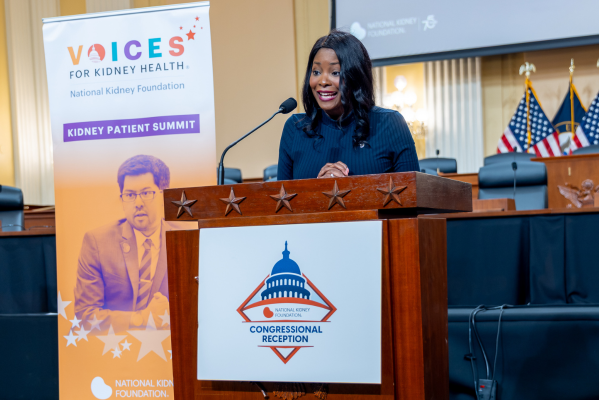
As Voices for Kidney Health advocates, your voice matters in the appropriations process. Over 100 Kidney Patient Advocates were just in Washington, DC on March 17-18 for the 2025 Kidney Patient Summit, advocating on these priorities, but we need more people to raise their voice.
Here's how you can help:
- Contact your Members of Congress: Click the link to contact your Representatives and Senators and ask them to support the full funding requests for kidney health programs in the FY2026 budget.
- Share your story: Personal stories about how kidney disease has affected you or your loved ones can be powerful in demonstrating the need for these programs.
- Stay informed: Follow updates from organizations like the National Kidney Foundation about legislative priorities.
- Spread awareness: Share information about these programs on social media or in your community to help others understand their importance.
The FY2026 funding for these kidney health programs will directly impact the lives of millions of Americans living with or at risk for kidney disease. By advocating for full funding, you're helping to ensure better detection, treatment, and outcomes for kidney patients across the country.
✅ Top 3 Takeaways
✅ Top 3 Takeaways
Federal Funding Directly Impact Patients
Federal funding decisions impact kidney disease detection, treatment, and transplant access.
Key Programs Needing FY2026 Support
HRSA’s OPTN modernization ($67M), CDC’s CKD Initiative ($5.5M), and NIDDK research efforts.
Patient Advocacy Is Vital
Sharing personal stories and contacting Congress can help secure funding that improves kidney health for millions.
Remember: Your advocacy can help modernize our organ transplant system, expand early detection programs, and support crucial research that ultimately saves lives. Contact your Members of Congress today and ask them to support full funding for these vital kidney health programs.
